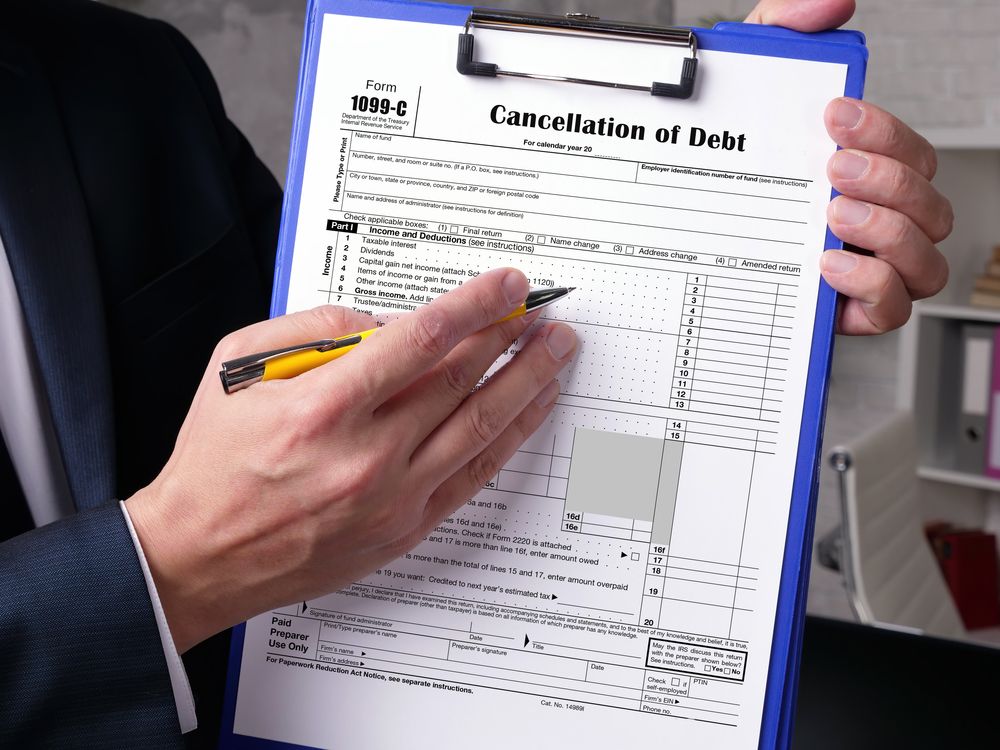Sometimes, when dealing with the ongoing issues involved with trying to get out of bad debt on your home, you may have to conduct a short sale to avoid foreclosure. However, you can find ways to negotiate with your lender to cancel any outstanding debt and move on with your life. Or so you thought.
When you successfully negotiate a debt cancellation with your lender, you feel an immediate sense of relief. That canceled debt can feel like a considerable weight lifted off your shoulders. However, if that debt was over $600, you may get a surprise come tax season. On canceled debts of $600 or more, the lender is legally obligated to file a 1099-C debt cancellation form. What does this form mean, how does it impact you financially, and what do you need to do are the most important questions that you need answered.
WHAT IS A 1099-C DEBT CANCELLATION FORM?
According to United States tax law, when your lender cancels an outstanding debt above a certain threshold, that canceled debt becomes taxable income. Since you initially received that money as part of a contract that said you would pay that money back, the IRS views the forgiven debt as virtually free money and, thus, included taxable income on your upcoming tax return. You’ll receive the 1099-C form in the mail from your lender during the current tax year.
WHAT SHOULD I DO WHEN I RECEIVE MY COPY?
When the form comes in the mail, DO NOT IGNORE IT. This tax form can go back to haunt you if you do not fill it out promptly, leading the IRS to come back later, collect back taxes, and potentially seek litigation. Even if you don’t receive a physical copy of the 1099-C in the mail, you are encouraged to keep track of any forgiven debt you receive. The IRS will still seek you to claim it on your tax returns as taxable income.
ARE THERE WAYS AROUND PAYING TAXES ON CANCELED DEBT?
Fortunately, exemptions and exclusions exist where you can avoid claiming your recently canceled debt as taxable income. You have to determine if you qualify for an exemption from paying taxes on your recently cleared debt. There are generally a few types of exclusions that can help you avoid paying such taxes, which are discussed in the following video:

